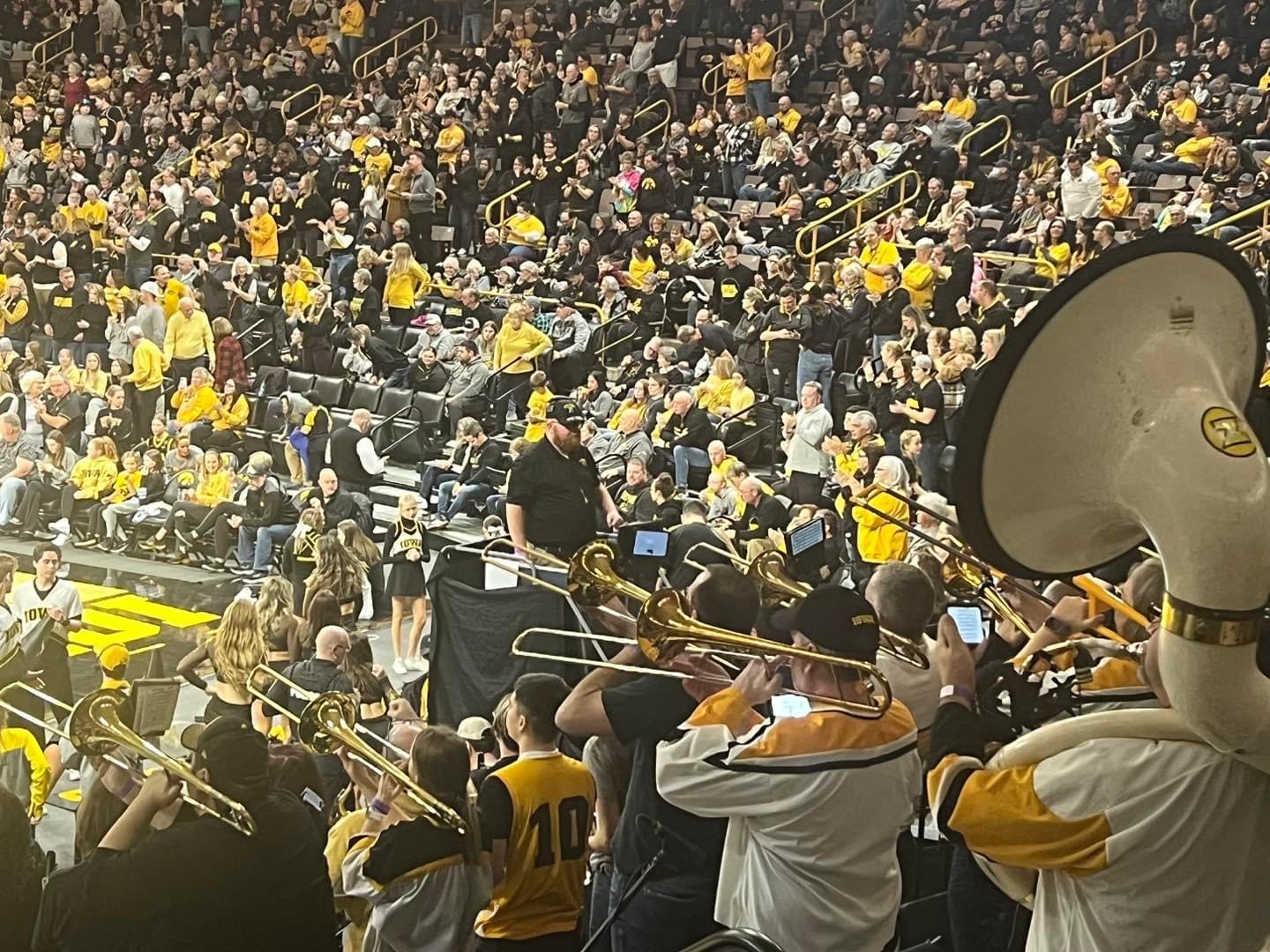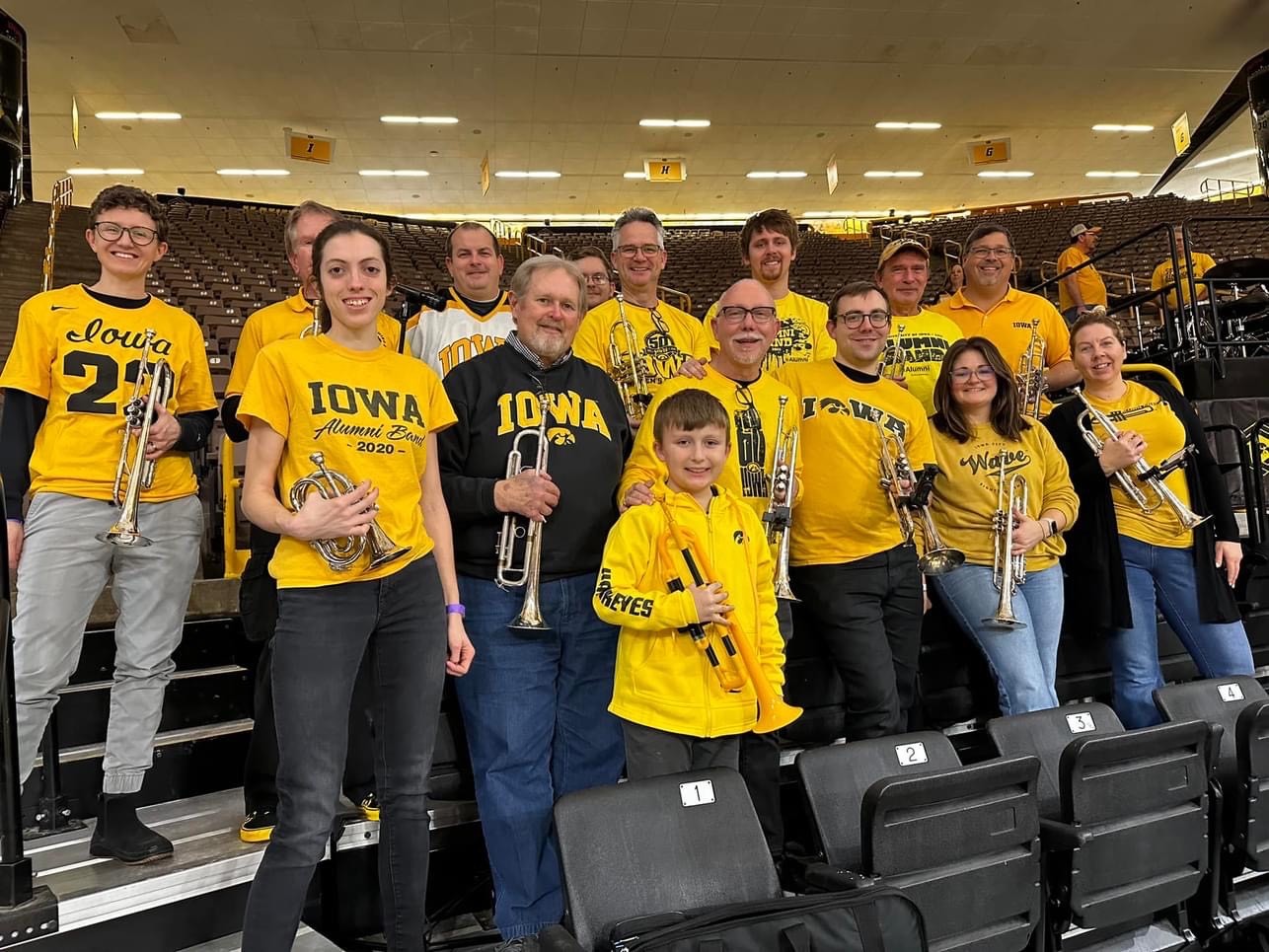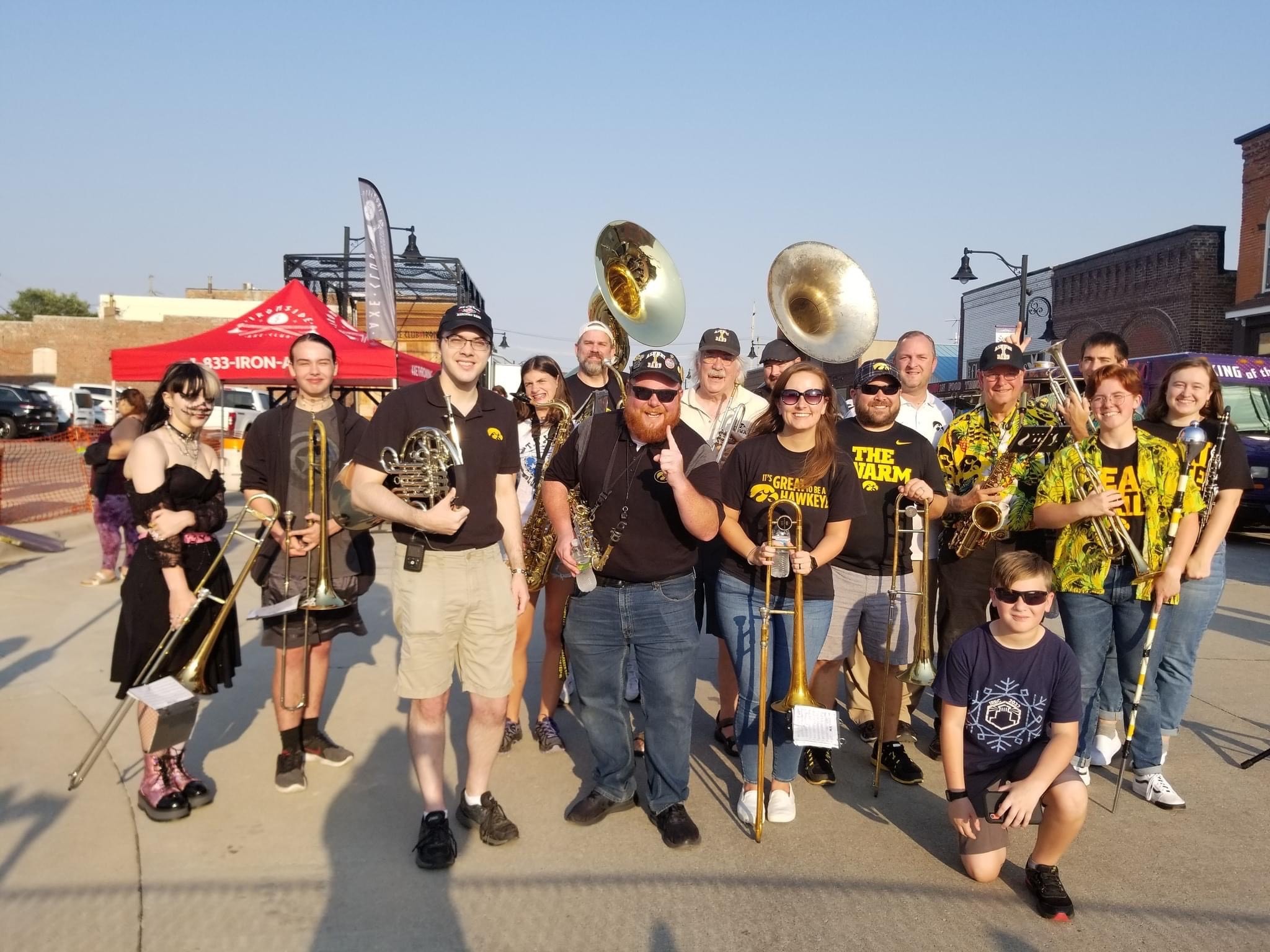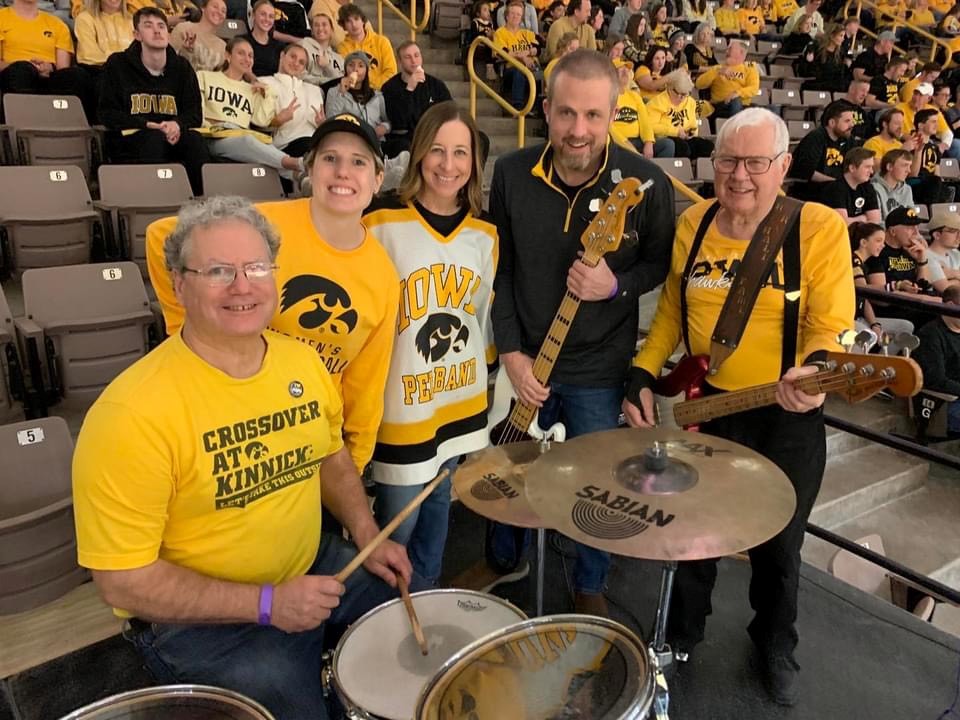ALUMNI BAND
Former Hawkeye Marching Band (HMB) members carry on beloved musical traditions and friendships through Alumni Band.
Members perform favorite songs such as “Hey Jude” and the “Victory Polka” at key university events, including the annual Homecoming parade and Iowa football pregame show. The Alumni Band also raises funds to enhance the Iowa band experience for current students. You can make a gift to support those efforts.
For updates, follow the University of Iowa Alumni Band on Facebook.
OUR LEADERSHIP
The Alumni Band Leadership Board is recruiting for additional members. If you are interested in becoming a board member, please apply using the link below.
The Alumni Band Leadership Board was created to expand the base of volunteers organizing our band, and to support the following purpose:
Open to all former Hawkeye Marching Band members (HMB), the Alumni Band Leadership Board (Board) assists in the lifelong relationship between the university and band alumni. With appreciation for the university so integral to the experiences of its students, the Board seeks to advocate for and enhance the experience of current Hawkeye Marching Band members through networking, mentorship, and fundraising. Additionally, the Alumni Band participates in key university events on and off campus, including the Homecoming Parade and football pregame and pep band performances.
To serve on the leadership board, you must:
- Be an exemplar of ideal engagement for our constituents and current students
- Promote alumni engagement through social, educational, and philanthropic initiatives and programs
- Attend full board meetings and participate in committees and other board projects between regular meetings.
- Serve a three-year term.
I’M INTERESTED IN REGIONAL BANDS
Regional pep bands perform for I-Clubs and other organizations and provide live music at watch parties across the US. If you’re interested in leading a band or playing, submit your name to the recruitment form at the link below, and we’ll get in touch with you about next steps.




Alumni Band Nostalgia and Resources
Watch this 2018 pre-game performance by the Alumni Band inside historic Kinnick Stadium.
Listen to These Classics
Remember those classic tunes you used to play on the field? How about the "Iowa Fight Song?" It doesn't get any more nostalgic.
Or maybe you recall this special song played during your downfield march at pregame! "On Iowa" is a classic.
Alumni Band Sheet Music
Former Iowa band members can find marching band and pep band sheet music for their instruments listed under each song.
ALMA MATER IOWA
Hey Jude
On Iowa
Roll Along Iowa
Iowa Fight Song
On Iowa, Roll Along Iowa, Iowa Fight Song Drumline
Stars and Stripes Forever
Stay Connected
Sign up for updates to stay in touch with fellow Hawkeyes, and share your updated contact information so you never miss an upcoming newsletter or email.
For more information, email alumni.engagement@foriowa.org or call 319-335-3305. To learn more about other ways to get involved with the University of Iowa, check out additional Iowa Alumni Networks.

